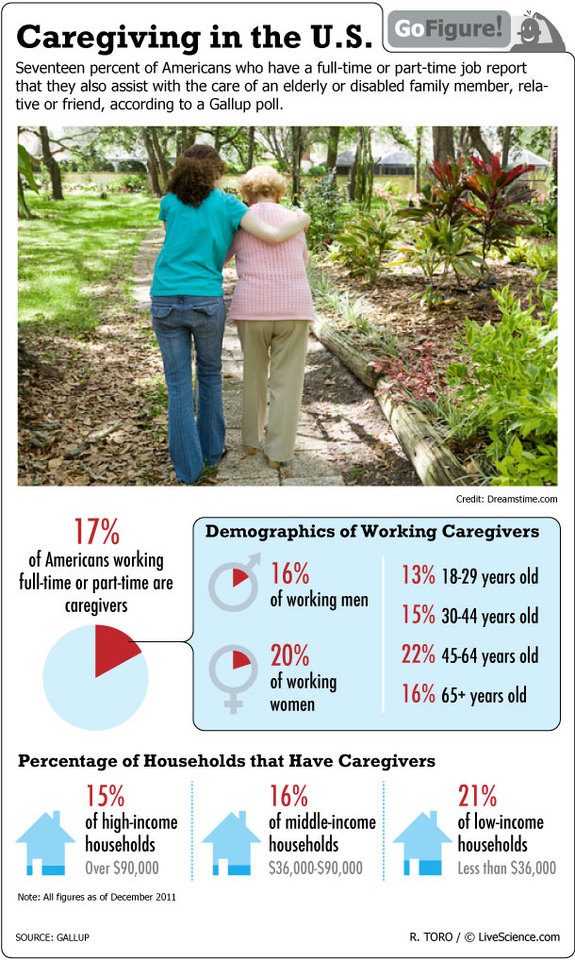For children with special needs, it can be important to take a break from scheduled speech therapy and constant structure. Children need opportunities to explore and shake their sillies out while engaging in new activities to simulate their mind, senses and physical movement. They also need opportunities to practice speech skills in new environments (and a highly motivating context can’t hurt). Fortunately for Baltimore Maryland families of special needs children, the Port Discovery Children’s Museum has it all. Across three different floors of educational, interactive and constantly changing programs for children birth – 10, this place makes it a point to engage children with special physical, fine motor or cognitive needs.
Best Resolutions for Caregivers This New Year
NewsHave you made your New Year’s resolutions yet? Many of us will start 2013 bound and determined to lose weight, de-stress, de-clutter, or get out of debt. Typical New Year’s resolutions focus on self-improvement. But if you’re the parent or caregiver of a special needs child, taking care of your own needs often takes a backseat. You’re probably too busy implementing the latest speech therapy techniques, driving your kids to occupational therapy sessions, etc. And when you’re not wrapped up in caregiver duties, you’re probably desperately trying to fulfill all of your career responsibilities – from preparing sales presentations to dealing with workplace uniforms to boost your company’s brand. And amidst that insanely busy schedule, there’s probably very little time to address your own needs. This New Year’s, resolve to take care of yourself so that you can better take care of everyone else.
Georgia Production Helps Special Needs Children by Empowering Parents
NewsSpecial needs children can often benefit from speech therapy, including those with Down syndrome (DS). Down syndrome can significantly impact a child’s language skills, particularly in terms of his ability to express himself and understand language. Speech therapy techniques can greatly help a child with Down syndrome learn to communicate more effectively. But it’s also important not to neglect the caregivers of special needs children. As a caregiver, it’s easy to feel overwhelmed or burned out, whether you’re caring for a parent with Alzheimer’s or dementia, or you’re trying to coax a child with Down syndrome to say a word. Empowering parents and caregivers is a necessary component of a treatment program for special needs children.
Yvonne Pierre is the mother of a boy with Down syndrome. This Georgia woman recognized the need to empower parents, and she made a powerful contribution to the field with her play, “Then You Stand.” Pierre wrote and directed the stage production, which is based in Georgia and explores the complexities of the discovery that an unborn child has DS.
Attention Parents: Real Advice from the Mother of a Special Needs Child
InterviewsThis week, Laura of Down Syndrome – Up Up Up and Away! is sharing her family’s story of life with Down syndrome (DS). DS can cause a range of physical and cognitive symptoms, including speech and language delays. Laura’s daughter K has Trisomy 21, which means that there is an extra copy of chromosome 21. Like other special needs children, K has more than proven that she can flourish with the proper therapies and treatments. Not only did K begin reading before she was 2 years old, she also began reading new books by the time she was 3 1/2. Laura also points out that for the typical special needs child, reading is a visual form of speech, and it can positively impact verbal communication.
Surviving the IEP Meeting
Individualized Education Program (IEP) Legal IssuesUnder the Individuals with Disabilities Education Act, a child who qualifies for special education requires an Individualized Education Program (IEP). This is a written treatment plan that describes your child’s speech therapy needs and how they will be met within the public school system. After your child is evaluated by an interdisciplinary team of professionals, you will receive a notice for an IEP meeting. During this meeting, the team will discuss your child’s needs and write his IEP if he is eligible for special education.





